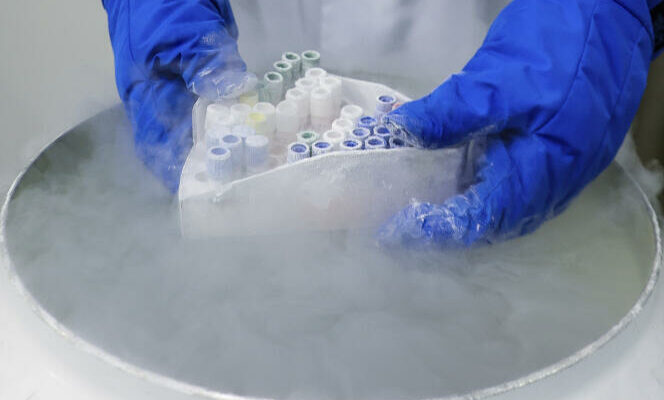Since their arrival on the market, their success has panicked the entire sector. At the annual global biotech meeting in San Francisco (California), which took place from January 8 to 11, drugs against obesity, unsurprisingly, took center stage. “ Virtually every investor and major pharmaceutical company we met asked if we had any biotech companies working in the field in our portfolio. »says Antoine Papiernik, at Sofinnova.
The recent treatments against obesity, Wegovy and Zepbound, marketed respectively by the Danish Novo Nordisk and the American Lilly, and which allow their users to lose up to 20% of their weight, are indeed experiencing an ascent dizzying. To the point that analysts are already predicting that this market will reach more than 100 billion dollars (91.74 billion euros) by 2030.
The increased interest from players in the sector is therefore not surprising. The Boehringer Ingelheim laboratory is banking on its partnership with the Danish biotech Zealand to enter the market. AstraZeneca recently concluded a licensing agreement with the Chinese Eccogene, while Roche paid $2.7 billion in December 2023 to acquire the American Carmot. For its part, Amgen is continuing development of its own drug candidate, while Pfizer, which recently failed on its own, announced last week that it was carefully scanning the market to buy or strike a deal for an early-stage product. . Even Sanofi, which abandoned its research in the field a few years ago, has reportedly expressed interest.
Artificial intelligence takes hold
Obesity is not the only area in the spotlight, however. Anticancer drugs, the pharmaceutical industry’s largest market in terms of value, continue to arouse desire. In San Francisco, enthusiasm has not waned, particularly for conjugated antibodies, a class of drugs that is already well established, but which has been enjoying a new lease of life for several months. The acquisition in 2023 of Seagen, a pioneer in the field, by Pfizer, for $43 billion, attests to this. Just like that, at the beginning of January, of the biotech Ambrx by J & J.
Another trend in the sector: the rise of immunology – which Sanofi, in particular, has made a priority – and which, like what happened in oncology several years ago thanks to efforts of researchers and scientists, is making strong progress in the discovery of more targeted treatments. Virtually abandoned by Big Pharma over the last decade, the field of treatments against diseases of the central nervous system has benefited from a boost in recent months, confirmed by the recent acquisition of Karuna, on the verge of commercializing a treatment against schizophrenia, by the Bristol-Myers Squibb laboratory, for 14 billion dollars.
You have 15% of this article left to read. The rest is reserved for subscribers.
